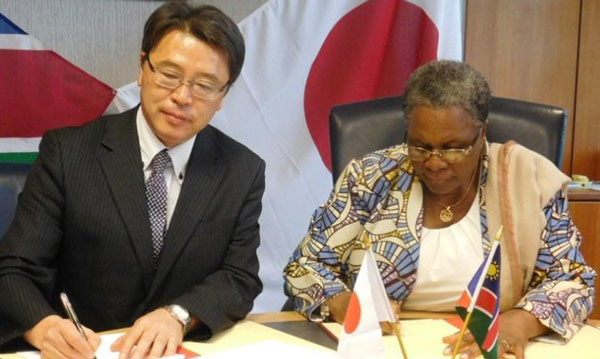
Japanese food aid helps rural communities overcome the impact of drought

The Japanese Government committed to provide Namibia with food aid to help the government support rural families that are still facing food insecurity due to the severe drought in 2016.
The Japanese Embassy in Windhoek announced that this week that Ambassador Hideyuki Sakamoto signed a grant agreement for food aid from the Government of Japan with the Minister of International Relations and Deputy Prime Minister, Hon Netumbo Nandi-Ndaitwah.
According to the embassy statement, “the Government of Japan has decided to provide food aid worth Yen40 million, about N$4.7 million, to Namibia in support of the government’s efforts for tackling food insecurity caused by the persistent droughts which hit Namibia for the last three years.”
“Although some good rains have started blessing the country, it will still take time for people to get enough harvest and the recent worm outbreak in the North which destroys crops is causing another concern. The Japan’s food aid is provided under such circumstances” the Embassy stated.
This week’s food aid comes in the wake of several other local projects in agriculture run by the Government of Japan.
Japan is currently implementing a technical cooperation project in the northern regions of Namibia to improve the livelihood of small farmers through the diversification of agricultural and farm products and through skills training. Part of the project includes facilitating farmers’ access to markets. Seven Japanese overseas cooperation volunteers are deployed in the northern regions.
Recently, a scientific pilot project introduced a new method of mixed cultivation of drought resilient mahangu and flood resilient rice.
The Government of Japan has identified agriculture as a key industry to boost food production and improve food security.












































